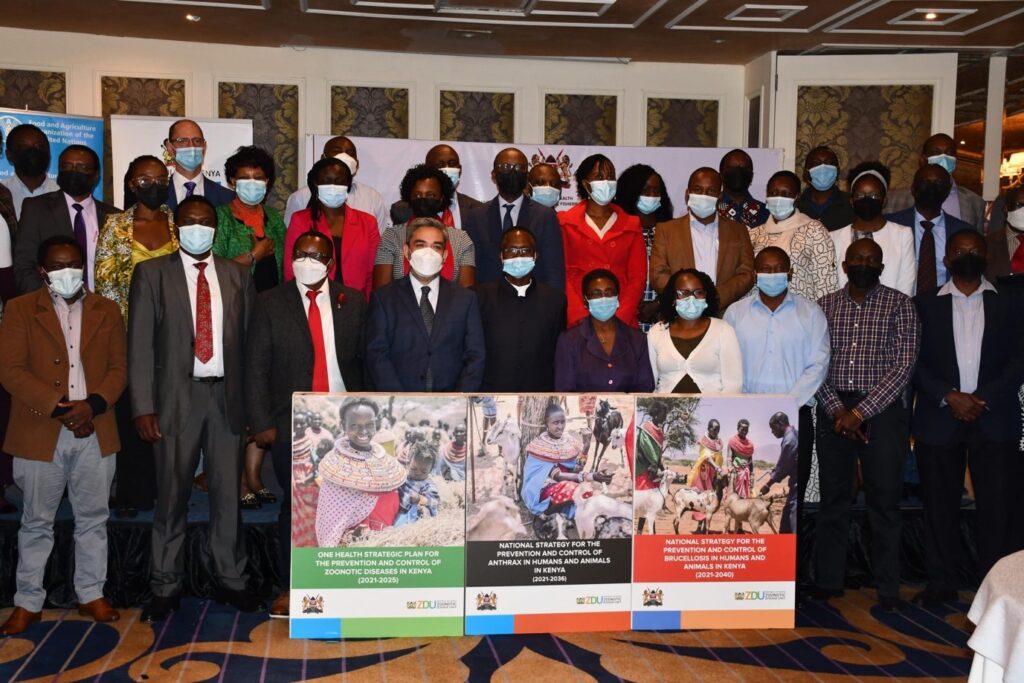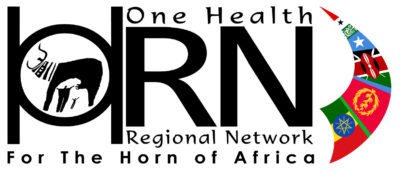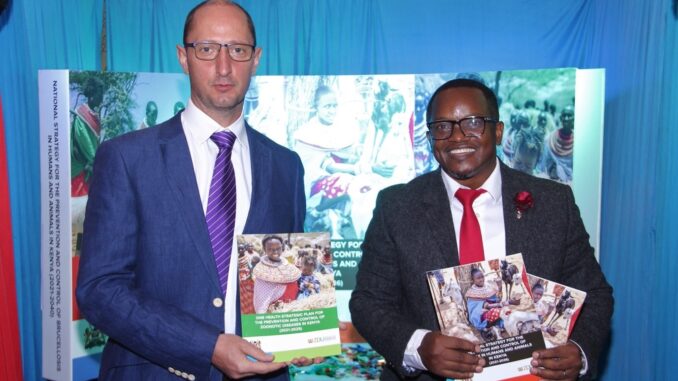
On 16th February 2022, Kenya reached a significant milestone in combating emerging zoonotic diseases by launching three One Health Strategic documents that were developed through multisectoral and multidisciplinary collaborations. This stakeholder engagement and validation process began in 2018 and since 2019 it has been led by Dr. Mark Nanyingi of University of Liverpool, HORN project. The Government body responsible for the strategies was the Zoonotic Disease Unit (ZDU), with which Nanyingi worked very closely. Technical advice and guidance were sponsored by the Food and Agriculture Organization of the United Nations (FAO) and a range of other partners (including HORN partners the International Livestock Research Institute and University of Nairobi), and financial support was secured from the USAID Global Health Security Agenda programme.
The three roadmaps are:
- One Health Strategic Plan for the Prevention and Control of Zoonotic Diseases in Kenya (2021-2025)
- National Strategy for the prevention and control of Anthrax in humans and animals in Kenya (2021-2036)
- National Strategy for the prevention and control of Brucellosis in humans and animals in Kenya (2021-2040).
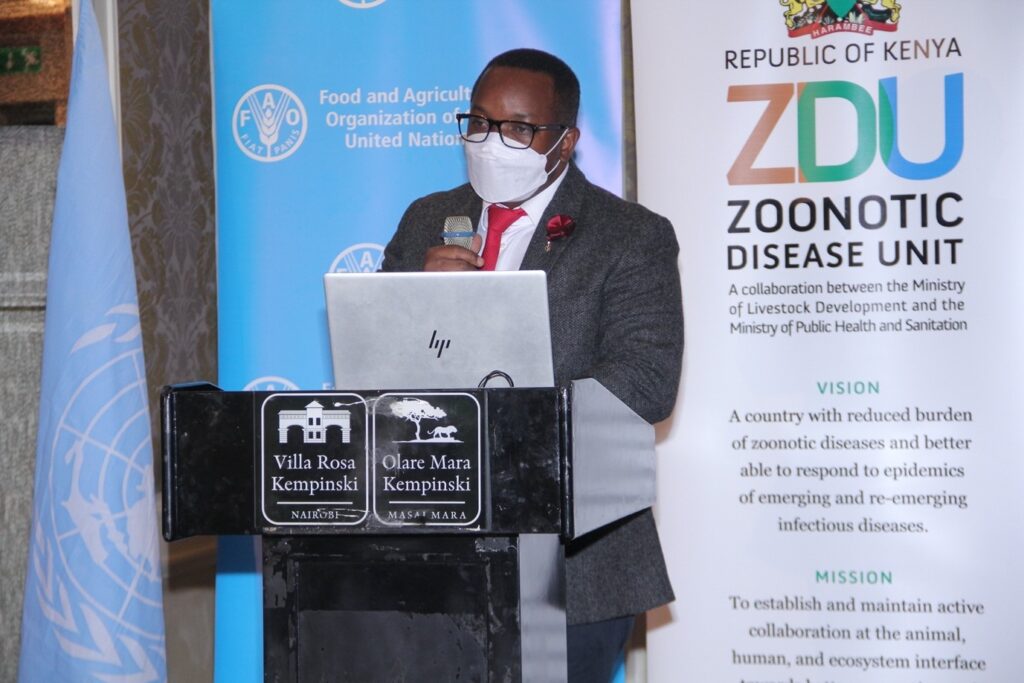
The One Health strategic plan aims to strengthen the implementation of one health approaches at the national and county levels, strengthen prevention, surveillance, response and control of priority zoonotic diseases in both humans and animals, and promote applied research using the One Health approach. We expect that some of the HORN Sandpit projects in Kenya will contribute to this evidence gathering through applied research. The Brucellosis and Anthrax control strategies are focused on i) Harmonising the legal and policy frameworks through development and institutionalisation of a one health policy for joint preparedness, surveillance and response plans, and operationalisation of County One Health Units (COHU), ii) Strengthening laboratory capacity for human and animal diagnosis, and iii) Enhancing multisectoral data sharing, communication, coordination, collaboration and partnerships to boost resources allocation.
HORN has played a central role in One Health workforce development in Kenya, through postdoctoral training and by sponsoring individuals through several sandpit projects that promote applied research (e.g. on spatial epidemiology of Anthrax, seropepidemiology of Rift Valley fever, Antimicrobial resistance, Brucellosis diagnosis and COVID-19 epidemiology). The outputs of these studies form part of the body of evidence that continues to guide decision makers in cost effective programmatic implementation of One Health approaches in Kenya. The refurbishment, equipping and repurposing of the One Health lab in Oloitoktok in Kajiado county by HORN will strengthen capacity for human and animal lab diagnosis of zoonoses in Kenya as outlined in the strategies.
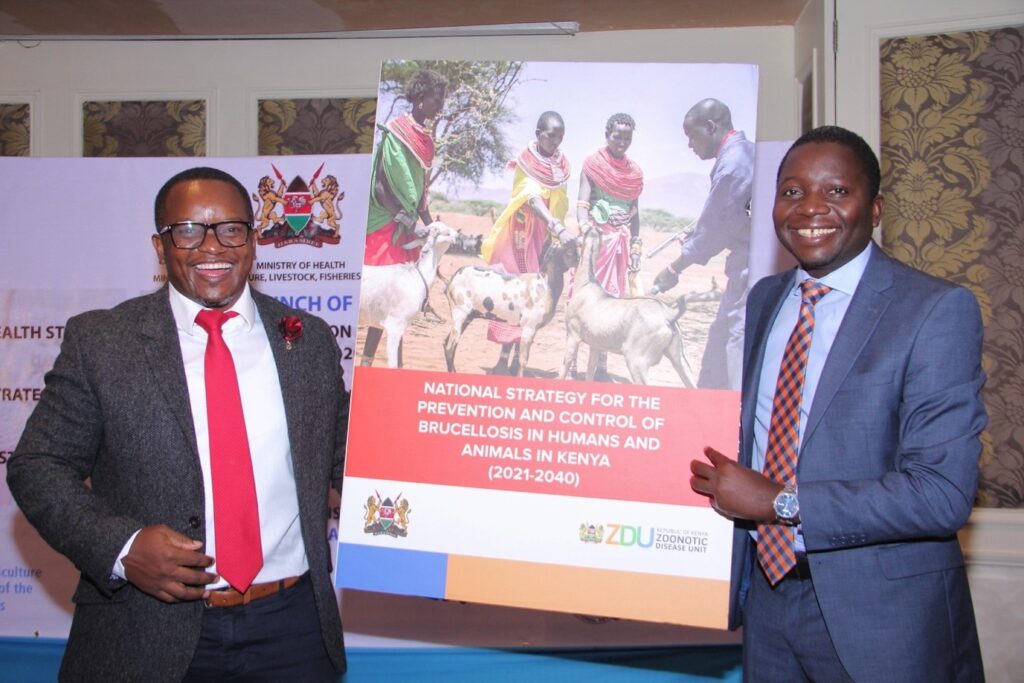
Among the One Health leaders who graced the occasion was Prof. Eric Fevre, who is jointly appointed at the International Livestock Research Institute and the University of Liverpool. He is a HORN co-investigator who has been collaborating with ZDU, the national government, and counties in carrying out extensive one health field research to generate data that informs policies that address zoonotic disease burden problems.
Dr. Nanyingi, who continues to provide technical support to the government of Kenya and scientific guidance to the FAO-ECTAD, termed this as a “Trifecta of One Health Success” that creates an opportunity for sustained global north -south collaborations in one health applied and implementation research. Speaking at the national high level strategy launch event attended by FAO,OIE,WHO, CDC, DTRA, USAID and Government representatives in Kenya, Dr. Nanyingi highlighted the need to estimate the cost benefit and effectiveness of one health programming to guide the prudent allocation of scarce resources for optimal disease control that will make Kenya free of Brucellosis and Anthrax by 2040.
